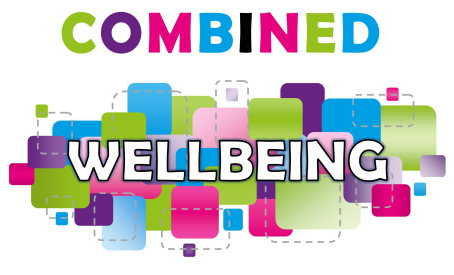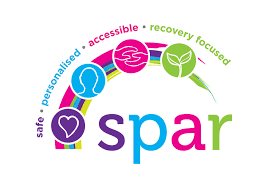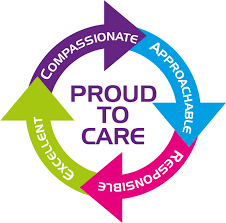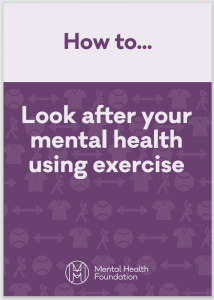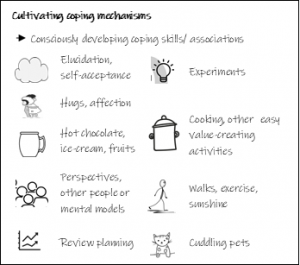Physical health

Information
Here you’ll find answers to some common questions concerning living with a long term physical health condition.
Select the underlined questions below to see more.
If you are looking at this page, it could be because you, or someone you know, has been diagnosed with some type of illness or physical condition.
It is important to remember that our minds and bodies are not separate entities and our mental and physical health have connected synergy.
Having issues with a physical health problem can significantly increase our risk of developing mental health problems, and vice versa.
You’re not alone; nearly one in three people with a long-term physical health condition also has a mental health problem. These often link to depression or anxiety.
Being diagnosed with an illness or physical condition can affect a person (and their families and friends) in a number of ways. Some of these are listed below:-
- Having worries about the illness or condition
- Maybe feeling frightened or scared about what may happen next
- Having feelings of anger or sadness or frustration
- Feeling confused about things
- Maybe being in pain
- There may be feelings of being different and not the same as people you know
As individuals we have many thoughts and feelings that can be difficult to cope with and also at times it can be scary to ask for help and information. There are many different thoughts and feelings that someone may feel and also find it difficult to cope with. Remember you are not alone – we can help and guide you with the support you need to overcome these feelings.
Hopefully, the information we give you will help to explain some of your thoughts and feelings, which may assist with your understanding of the problems. This may help you to plan how to manage these issues and move forward to more positive future.
One of the most important things to remember when you are thinking and feeling all of these thoughts and emotions is this:-
‘We believe that these thoughts and emotions are what Anyone would feel if they were also going through the same problems.’
Importantly, from academic research, there are defining points that we all should hold onto. Mostly, you won’t have these worries and difficulties or need help all the time; it is often just at certain times in your life that help is needed. For example:-
- At the very beginning when someone has just been diagnosed with a condition.
- Maybe when you are starting a new job or a course at college.
- As we get older our bodies change, which we need to adapt to.
- Some conditions cause pain and discomfort and this can be worse at different times (we will discuss this a bit later on…).
- Sometimes treatments can be changed or new ones started.
Remember many of these situations are temporary and being able to lead a fruitful and enjoyable life is the most important thing. So think about positive things in your life like:-
- Going to work and making friends.
- Taking part in activities that you love and being able to cope with your condition whilst doing all of these things.
Hopefully, some of the tips and ideas that we will discuss later will help to give you some ideas about how best to manage the worries or difficulties you may have.
You may sometimes feel that everyone you know are only interested in your illness and don’t even ask about you – just your illness. Unfortunately, this can make you feel like your condition is taking over your life and you are losing your sense of identity. In these circumstances you may want to reflect and think to yourself:-
‘I am not my illness- I am a person first’
Coping with an illness/ physical condition or having treatment, which sometimes maybe away from where your home is, can be stressful for you and your family and friends.
Sometimes the number of medical appointments can make your normal family routine go out of kilter and as a result make you and your family feel anxious and confused.
Understanding things like –

- Pain
- Anger
- Sadness
- Unfairness
- Discomfort
- Threat
- Anxiety
Being able to manage these feelings and carrying on doing the things that are part of your everyday life can help you come up with different ways of dealing and coping with the issues.
The Mental Health Foundation research shows that people with a mental health problem are more likely to have a preventable physical health condition such as heart disease.
This can be for a variety of reasons, including:-
- Genetics. The genes that make it more likely that you will develop a mental health problem may also play a part in physical health problems.
- Low motivation. Some mental health problems or medications can affect your energy or motivation to take care of yourself.
- Difficulty with concentration and planning. You may find it hard to arrange or attend medical appointments if your mental health problem affects your concentration.
- Lack of support to change unhealthy behaviour. Healthcare professionals may assume you’re not capable of making changes, so won’t offer any support to cut down on drinking or give up smoking, for example
- Being less likely to receive medical help. Healthcare professionals may assume your physical symptoms are part of your mental illness and not investigate them further. People with a mental illness are less likely to receive routine checks (like blood pressure, weight and cholesterol) which may detect symptoms of physical health conditions earlier.
As well as this, mental health problems can come with physical symptoms. Our bodies and minds are not separate, so it’s not surprising that mental ill health can affect your body. Depression can come with headaches, fatigue and digestive problems and anxiety can create an upset stomach, for example. Other symptoms can include insomnia, restlessness and difficulty concentrating.
Reference Mental Health Foundation (https://www.mentalhealth.org.uk/a-to-z/p/physical-health-and-mental-health)
As mentioned previously our physical and mental health are closely linked. If you have a long-term physical health condition you are also likely to experience mental health problems such as depression and anxiety. It is important to know that this does not mean a mental health issue is inevitable. There is support available which will be covered later.
Long-term physical conditions are those which can’t currently be cured but can be managed with medication or other treatment. They are also known as chronic conditions. Examples include but are not exhaustive:-
- High Blood Pressure (Hypertension)
- Asthma
- Diabetes
- Chronic Obstructive Pulmonary Disease (COPD)
- Arthritis
- Epilepsy
- Heart Disease
You are not alone. More than 23.7 million people, or approximately 41% of the adult population in England, are living with one or more long-term physical conditions. These conditions are more prevalent among the older generation and are higher in more deprived groups. However, they are not limited to specific demographics and impact all elements of society, regardless of social status. Long-term physical conditions can affect various aspects of your life, including relationships, education, employment, financial stability, and mental health.”
If you have a long-term physical condition this can lead to social isolation, depression, anxiety, low self-esteem, stigma and discrimination. You may have feelings of tiredness, feel frustrated, worried or stressed, especially when you are dealing with pain you are experiencing, tests, treatments or further outbreaks.
These conditions can make you more likely to develop a mental health problem such as depression or anxiety. In fact, research shows that people with a long-term physical condition are more than twice as likely to develop mental ill-health. Mental health problems can then make it harder for you to cope with your physical health condition.
Reference: Adults’ health – NHS England Digital
NHS Health Survey for England 2022, published Sept 2024
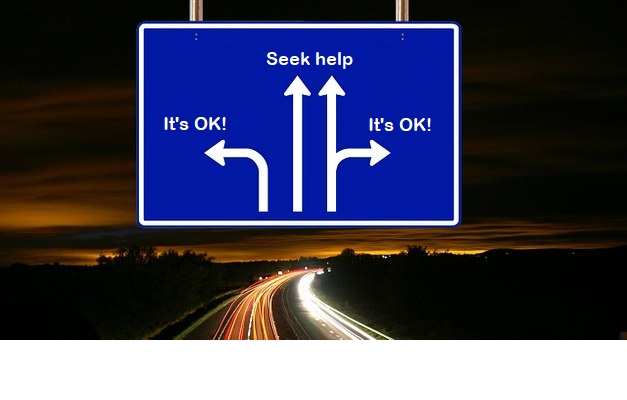
Coping with
Each individual is unique, what may be beneficial for one person in managing their condition may differ for another.
Nevertheless, there are several evidence-based strategies and techniques listed below that have been extensively researched and proven to be effective in alleviating pain, discomfort and negative or anxious thoughts
The following buttons are self-help suggestions

Finding help
What can you do?
- Consult Your GP
- Speak with a Mental Health Professional
- Join Support Groups
- Engage in Self-Care Practices
- Utilize Online Resources”
Select the underlined topics below to view what resources are available.

Getting more help
If you haven’t already found the help you’re looking for, you can find additional information and services which are more interactive here.
